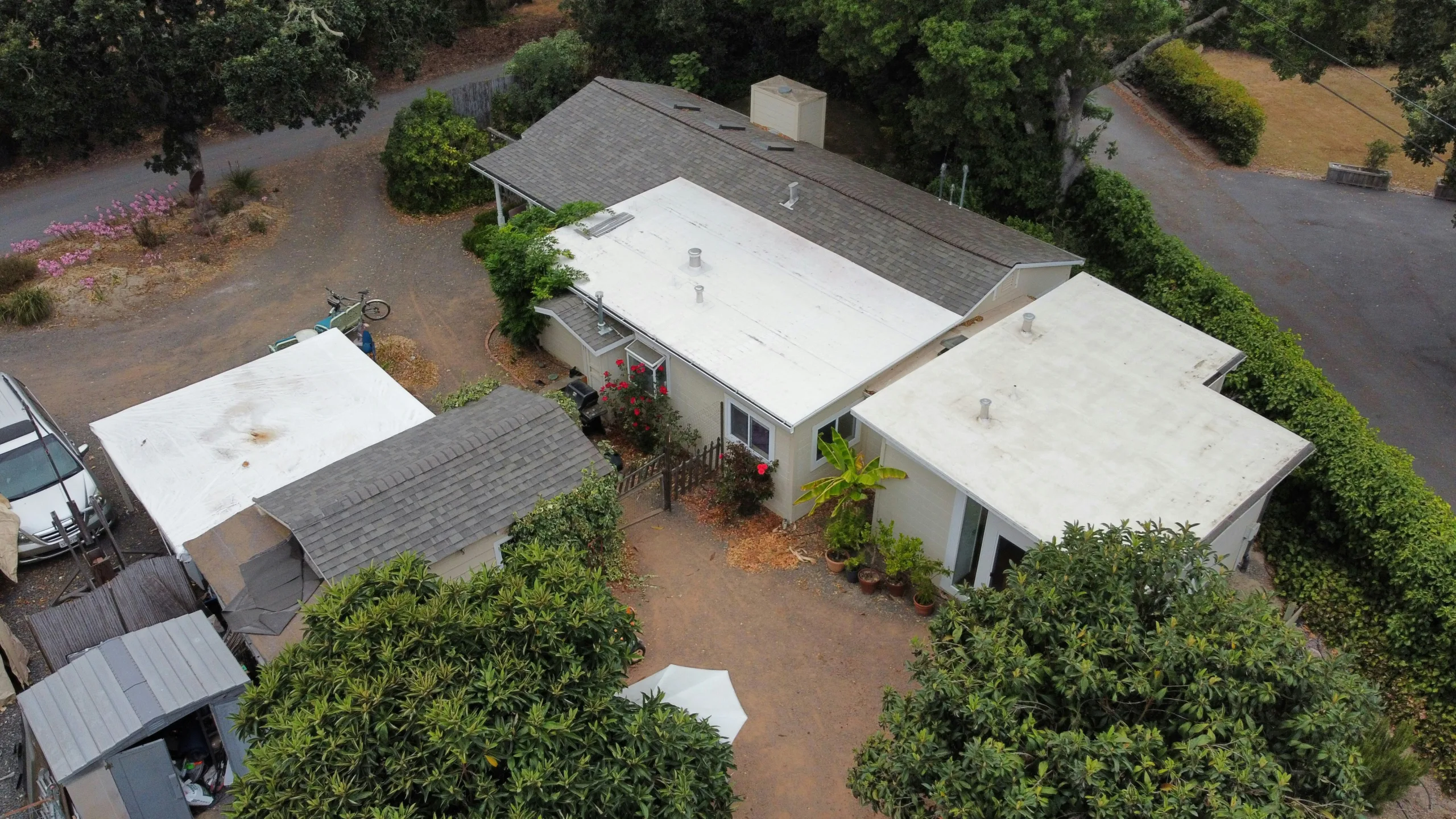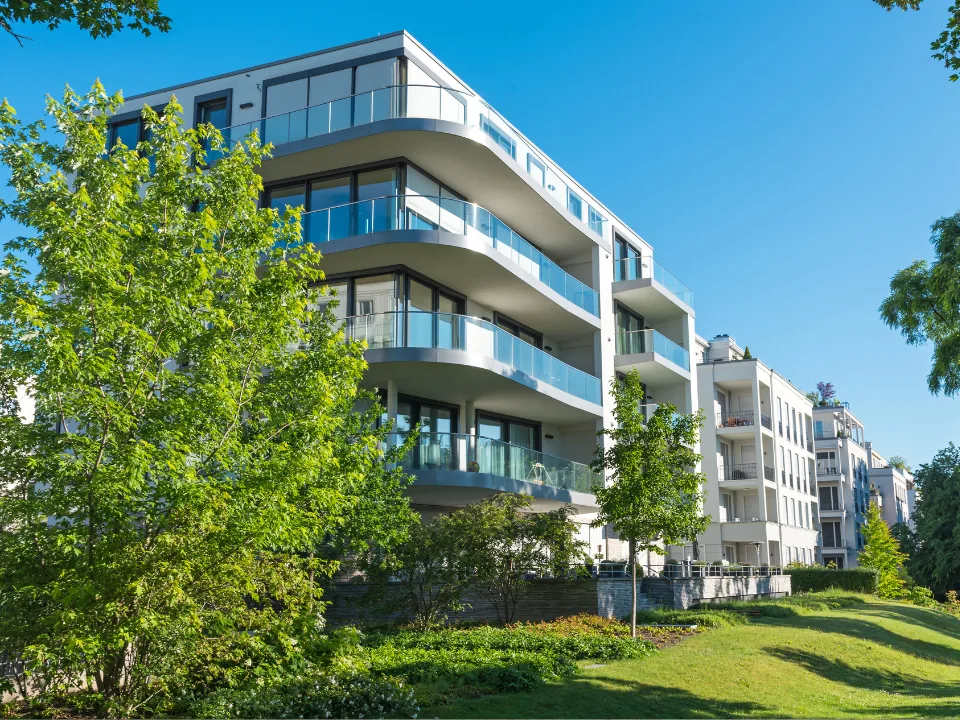Record Q2 Earnings Boosts Prologis Outlook
Prologis, the global leader in industrial development, has boosted its financial forecast following an extraordinary midyear performance that saw its profits and sales double.
Together with
Good morning. The world’s top industrial developer increased its financial outlook after doubling its profits and sales. Terra’s failed $1.2B Miami waterfront purchase hints at a possible South Florida cooldown.
Meanwhile, REBNY reports Manhattan office visits are regaining ground at 73% of pre-COVID levels midweek. Plus, CRED iQ discloses a monthly uptick in distressed CRE loans across 70% of the top 50 MSAs in June.
Today’s edition is brought to you by Roots. Invest in a win-win real estate investing ecosystem that creates partners, not tenants.
Market Snapshot
|
|
||||
|
|
*Data as of 7/18/2023 market close.
👋 First time reading? Sign up here.
EARNINGS REPORT
Prologis Q2 Earnings and Revenue Soar, Despite Global Warehouse Demand Slowdown

The world’s largest industrial developer, Prologis (PLD), has raised its financial outlook following a remarkable doubling of its profit and sales at midyear. This impressive growth has been recorded amidst signs of fluctuating demand in the overall warehousing sector and rising interest rates.
Strong performance: In the face of an industrial market slowdown, Prologis reported substantial investments during Q2, surpassing $4 billion in property acquisitions and other ventures. According to CFO Tim Arndt, the company’s size gives it a competitive edge in the industrial sector that has been significantly bolstered by the increased need for warehouses during the pandemic. As a result, Prologis has revised its 2023 per-share net earnings forecast to $3.30-$3.40, a notable increase from the previous projection of $3.10-$3.25.
Record growth amidst slowing demand: Despite easing global demand due to concerns over high-interest rates, the San Francisco-based REIT reported record growth in rent and property acquisitions. The company, which owns over 1.2 billion square feet across 5,560 buildings in 19 countries, doubled its total revenue to $2.45 billion, with net earnings also increasing significantly. It also enhanced its financial stability by raising an additional $1.2 billion in equity during the quarter.
Major acquisitions: Using its cash reserves, Prologis has been able to invest in new distribution centers and made significant acquisitions, including the recent purchase of 70 logistics properties totaling 14 million square feet from Blackstone Group affiliates. This acquisition, the largest industrial property purchase in the United States this year, extends Prologis’ reach into some of the country’s biggest industrial markets, including Atlanta, Washington, D.C., Dallas, Las Vegas, Phoenix, South Florida, New York, and New Jersey.
➥ THE TAKEAWAY
Big picture: Despite looming market challenges and a slowdown in overall demand for industrial properties, Prologis’ robust performance underscores strong investor interest. Even with a slight dip in warehouse occupancy, the company foresees peak vacancy rates followed by a decline from 2024 as construction tapers off. Prologis’ strategic acquisitions and resilience equip it for sustained growth amidst potential industry deceleration.
TOGETHER WITH ROOTS
A win-win ecosystem where the residents are your partners
Picture this: You own an investment property, but your tenants aren’t just paying the rent, they’re your partner too. Sounds like a dream, right?
Well, it’s not. Meet Roots.
This private REIT has revolutionized the tenant/landlord relationship thanks to its unique win-win fund structure. This tight partnership leads to better property care, fewer vacancies, lower turnover, and boosted returns.
Over $14M dollars have already been invested into the fund. And in the last 24 months, it’s returned more than 36%, making traditional investments look about as thrilling as a vacancy sign in the San Francisco office market.
So if you have dry powder on the sideline and are waiting for something new, try Roots. It takes less than five minutes to invest.
Disclosure: This post contains sponsored content. Past performance is not indicative of future results.
DEAL CRUMBLES
Collapse of Terra’s $1.2B Miami Waterfront May Be Sign of Cooling

Genting Malaysia received nine offers when it put a 15.5-acre property in downtown Miami on the market. PHOTO: EMILY MICHOT/MIAMI HERALD/ZUMA PRESS
Could the collapse of the record-breaking Florida waterfront land sale last month signal a slowdown for the South Florida market?
The details: Southeast Asia casino operator Genting Malaysia cut a deal in the spring to sell the land for $1.2B, which was supposed to be the most expensive Florida land sale on record. However, the deal collapsed last month when the buyer, led by Terra, could not agree on terms with Genting. While the site still attracts interest, potential buyers have yet to step up to the plate.
South Florida slowdown? South Florida continues outperforming the rest of the country in multifamily, office, and retail. Still, demand has slowed since its 2021 peak alongside lower migration. Miami’s hot market may cool down more due to high rates and tighter credit. The number of Miami condos that sold for over $1M fell 41% in May YoY, with the median sales price down 3% to $1.5M compared to last year. Commercial property sales were down in 1Q23 to $1.4B compared to a $1.8B average in the 5 years before the pandemic.
The price is not right: Other interested buyers in the land say that the $1.2B price tag is too high now that borrowing costs have skyrocketed and the condo market has slowed. At current rates, a buyer would have to pay at least $72M a year in debt service if they paid $1.2B and borrowed half of that amount. Genting might attract more bidders if it divided the site into pieces rather than trying to sell it all at once.
➥ THE TAKEAWAY
Let’s make a deal: Miami was one of the hottest markets during the pandemic because everyone wanted to move to FL for the sunny weather, business-friendly regulations, and taxes. However, Florida fervor is finally waning now that rates are higher and debt is expensive. Given its size and location, Genting’s waterfront property has a lot of potential, but the project scope may be too large for one buyer.
BACK TO WORK
Midweek Manhattan Office Visits at 73% of Pre-Pandemic Levels

Same-day midweek Manhattan office visits are back to nearly three-quarters of pre-pandemic levels, according to a study. (Getty Images)
According to the Real Estate Board of NY (REBNY), same-day employee office visits in Manhattan from Tuesday through Thursday is at 73% of pre-pandemic levels but more than double the rate from last year.
Hybrid is still king: Workers are starting to return to offices, but mostly in the middle of the week. Office visits are almost double the 38% rate from a year ago. While Mondays and Friday visits have improved, they still trail midweek visits at 61% and 47%, regardless of building class. McKinsey & Co. found that changes in office usage threaten a “severe and lasting impact” globally and may wipe out $800B in office value in nine cities by 2030. At 3.5 days per week, office attendance is still 30% below pre-pandemic levels among those 9 cities.
Unclear data: REBNY uses mobile location data from Placer.ai to track office usage, while Kastle Systems uses keycard swipe data and employer surveys to pull data. While Kastle data shows NYC and the 10-city U.S. average office usage rates stalled around 50%, many argue their tracking methods are too complex.
Not good enough: While office use may be picking up, the damage may already be done. Higher rates and tight financing have led some major real estate owners, like Columbia Property Trust (CXP), to default on some of their office debt. Fitch Ratings reported that U.S. CMBS delinquencies are expected to double to 3.5–4% of total office loans at the end of the year from 1.8% in May as more defaults occur. Only 30% of $1.15B in fixed-rate office loans on the CMBS market that matured through April this year were paid off.
➥ THE TAKEAWAY
Flight to quality: Economic uncertainty, which has led to tech and other industry layoffs, along with higher borrowing costs, have contributed to record-high vacancies in NYC offices. While Class A, well-located buildings are faring better than those with less appealing amenities and locations, Class A office tenants are getting about a quarter of their total rent as concessions, including free rent and tenant improvement allowances, up from 17.1% pre-pandemic.
DEEPENING DISTRESS
70% of the Largest MSAs Saw an Increase in CRE Loan Distress

PHOTO: PRECISIONVIEWS VIA WIKIMEDIA COMMONS
According to CRED iQ, 70% of the 50 largest MSAs revealed month-over-month increases in the percentages of distressed CRE loans for June.
Market mayhem: Markets with the most increased distress include Minneapolis (+10.6%), DC (+2.5%), and Charlotte (+2%). The Minneapolis MSA tops the list of distressed CRE loans among the top 50 markets at 33.6%, nearly 3x higher than second place (Chicago’s 11.5%). The average MoM increase in markets with comparatively higher levels of CRE distress was around 61 bps. 15 markets exhibited MoM improvements in distressed rates. St. Louis (-2.7%) and Pittsburgh (-1.3%) showed the sharpest declines.
Windy City worries: As the 4th largest U.S. office market, Chicago experienced over $450M in new distressed CMBS loans by June, including a significant $310M mortgage for a key CBD office property. Two suburban office properties also faced special servicing transfers due to credit issues.
Property type matters: The office and mixed-use sectors remain volatile, accounting for 6 of the 10 largest increases in distress by sector. Office in DC (+10.6%), St. Louis (+10.3%), and Chicago (+5.6%) were among the sectors with the sharpest MoM increases in CRE distress. The sector with the highest MoM increase in distress was Charlotte retail, which saw its distressed rate surge to 24.5% of outstanding debt that is delinquent or specially serviced.
➥ THE TAKEAWAY
To sum it up: The Minneapolis MSA has maintained its position at the top with the highest overall distressed rate at 33.6%, followed by Chicago (11.5%), Milwaukee (9.9%), Cleveland (9.8%), and Birmingham, AL (8.8%). The Salt Lake City MSA (0%) has the lowest level of distress among the top 50 MSAs in the U.S. for the second consecutive month.
✍️ Daily Picks
-
Prequin’s perspectives: A recent report from London-based research firm Preqin provides seven key takeaways on U.S. real estate in 2023.
-
Palm Beach purchase: Citadel bought a 50 KSF office building on Palm Beach’s Worth Ave. for $83M, adjacent to the firm’s other Worth Ave. office building.
-
We’re not Detroit: San Francisco is not bound to follow the same decline as Detroit, as it’s a resilient city that can overcome its current real estate challenges.
-
Battling bankruptcy: Nine months before Modell’s Sporting Goods filed for bankruptcy, then-CEO Mitchell Modell tried his hand at the NYC office market. That didn’t go too well.
-
Too little, too late: Stefan Soloviev wants to rescue his beloved Pawtucket Red Sox minor league baseball stadium in RI, but residents have already voted to have it demolished.
-
Not worried: Treasury Secretary Janet Yellen doesn’t expect a recession as the U.S. has seen a strong labor market, despite slower-than-expected economic growth in China.
-
By the book: James Duant, CEO of Barnes & Noble (BNED), discusses how he’s reinvented the bookseller through the years by revitalizing physical stores and embracing the digital age.
-
Cautiously optimistic: Denver’s first new mayor in 12 years, Mike Johnston, will focus on solving the city’s homelessness and affordability problems and revitalizing the downtown core.
-
Power supply problems: Global data center growth is hindered by power supply issues. Despite strong near-term fundamentals, a shortage of available power could limit global development.
-
Costly California: According to CoreLogic, 8 of the 10 most expensive housing markets are in California, with San Francisco at #1. That explains a lot.
-
Soft landing: Many economists still believe in the possibility of a soft landing, as they consider factors that could contribute to a more gradual and stable slowdown.
-
Proptech to the rescue: The government plans to use $1B from the Inflation Reduction Act (IRA) on emerging and sustainable tech, like proptech, to upgrade federal buildings nationwide.
-
Affordable Texas: Dallas-based Elizabeth Property Group closed a deal for six apartment properties of 1,444 units across Texas, all utilizing the Low Income Housing Tax Credit program.
-
Government ghost town: A report from the Government Accountability Office (GAO) reveals that many federal office buildings are about 20% occupied, leading to concerns about how much these empty buildings cost taxpayers.
-
Loan for sale: JPMorgan (JPM) is looking to sell a $350M loan backed by the HSBC Tower in Midtown, offering cheaper-than-market-rate financing to lure a potential buyer.
-
We have a deal: Texas Republicans struck a deal on the $18B property tax reform bill, which should reduce property taxes levied by schools, increase the homestead exemption, and introduce a pilot program for appraisal caps.
📈 Chart of the Day
Pandemic-era CRE transactions took a dive in May, dropping 71% YoY after peaking last year at $74B. This dip in activity is still a substantial 55% below the pre-pandemic five-year monthly average. In short, the CRE market is currently navigating slower waters.
What did you think of today’s newsletter? |
HIT THE INBOX OF 65K+ CRE PROFESSIONALS
Advertise with CRE Daily to get your brand in front of the Who’s Who of commercial real estate. Subscribers are high-income decision makers, investors, and C-suite executives always looking for their next investment, product, or tool.





















